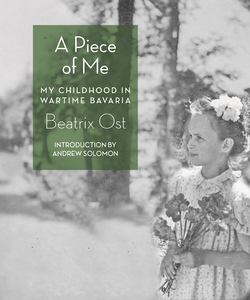Читать книгу A Piece of Me - Beatrix Ost - Страница 20
На сайте Литреса книга снята с продажи.
THE GLEANERS
ОглавлениеIt was gray, evening coming on early. November fog lay low across the harvested potato fields, mixing with smoke from the fires. Old roots and dried shrubs were piled up and burned. Cold crept along the ground. The white dust of the frost encircled branches and brittle leaves; spread itself across frozen puddles, over molehills, into hollows; lay in the air between the land and a pale sun.
In the distance, knots of people stood together around fires. Others moved along the potato furrows. They hauled sacks, bending deeply, fishing for the last potatoes, the overly small ones, those forgotten or left behind, those no one bothered to harvest. Collecting went on all day: bend over, stand up, bend over, stand up. They looked like crows pecking for seeds. They made their pilgrimage from the city, from the surrounding villages, into the surrounding fields. Mostly they were women of all ages, but children and old men were there, too. The women wore trousers beneath their skirts to keep warm; the men, boots or wooden shoes with thick socks, and old army jackets.
For us children from the farm, it was an adventure. We blew warm breath into our fists, hopping from one foot to the other, warming ourselves at the fire with the hungry people from the city. Potatoes rolled into the glow. We fished for them with sticks, poked around. The hungry held their red hands above the heat, chatted a little until the potatoes were done, then shared them.
In the evening, having picked the fields clean, they tied their sacks behind them on their bicycles and pedaled homeward. Or they pushed a cart, freighted with sacks of potatoes, a child perched on top with a skinny dog for company. One pulled in front, another pushed in back. So it went all the way home.
They came again at the end of the summer, after the harvest. Hungry figures from town visited the wheat fields. There were always some with only one leg or arm. They leaned their bicycles on one another, traversed the field in search of gleanings, made bouquets as if they were flowers. At the end of the day their harvest was painstakingly bundled up and strapped to the bikes, so it could be transformed into bread at home.
Sometimes they lingered. My mother, passing by in the carriage, stopped to chat with the women. She asked them where they came from, or how many mouths they had to feed, or she said: Do come around to our door when you’re done. I’ll give you an egg or two.
The gazes of the hungry children pierced through me, the well-fed child, like buckshot.
There, at the edge of a cornfield, grew the social framework for a new society.
Did you see her delicate features, those tender hands? my mother said. That one has seen better days.
From beneath the woman’s apron peeked a ratty old dress. That, too, told a story of better days, of summer, of strolling through town, of coffee under the coffeehouse umbrella, of a fiancé’s kiss at the door.
The gleaners. Naturally, they were forgotten by history, along with everything else, in the circus melee of the postwar years and the economic miracle that followed. Their newfound affluence slowly swallowed the old hunger. They did not want to be reminded. No one mentioned it anymore. Don’t even think about it, push it away, make room for a new world.
•
In late autumn, during harvesttime, Dieter was dispatched into town with the tractor, wagon in tow. He was to fetch a group of young teenage girls from a girls’ school, to help with the farmwork.
Thanks to the war, the girls had grown up very fast. Surviving many bombings had made them very bold, and despite the lost pleasures of their childhood, they had sustained their joie de vivre. Dieter glanced back furtively. It seemed to him the girls were wearing the latest fashions, especially compared with his shabby army outfit, so often mended by his mother. Lined up on two boards along the sides of the wagon, they sat and swung their legs, showing them freely, laughing about anything and nothing, embarrassing Dieter. And so they rattled along the road until they arrived at our potato fields.
The girls trudged along behind a plow, collecting potatoes in sacks. When the sacks were full, they were tipped into a cart. It started to rain. The girls sought shelter under the one available roof: the potato wagon. But the rain got through between the narrow planks, and after a short while, they were drenched. Their cheap dresses rode up above their knees, clinging to their thin bodies. Little rivulets of color ran down their legs.
All alone with what was now a silenced, freezing crew of girls, Dieter made a chivalrous decision. Take your seats, he told them, I am taking you home early.
Holding the spare sacks over their heads as tents, their short skirts pulled down over their knees, packed together, they rattled along the paths to the road toward town. All was quiet on the cart. No more giggling. They were once again just little girls who’d had to go to work far too early, who’d lost their childhood to a Führer, traded away their carefree liberty.
